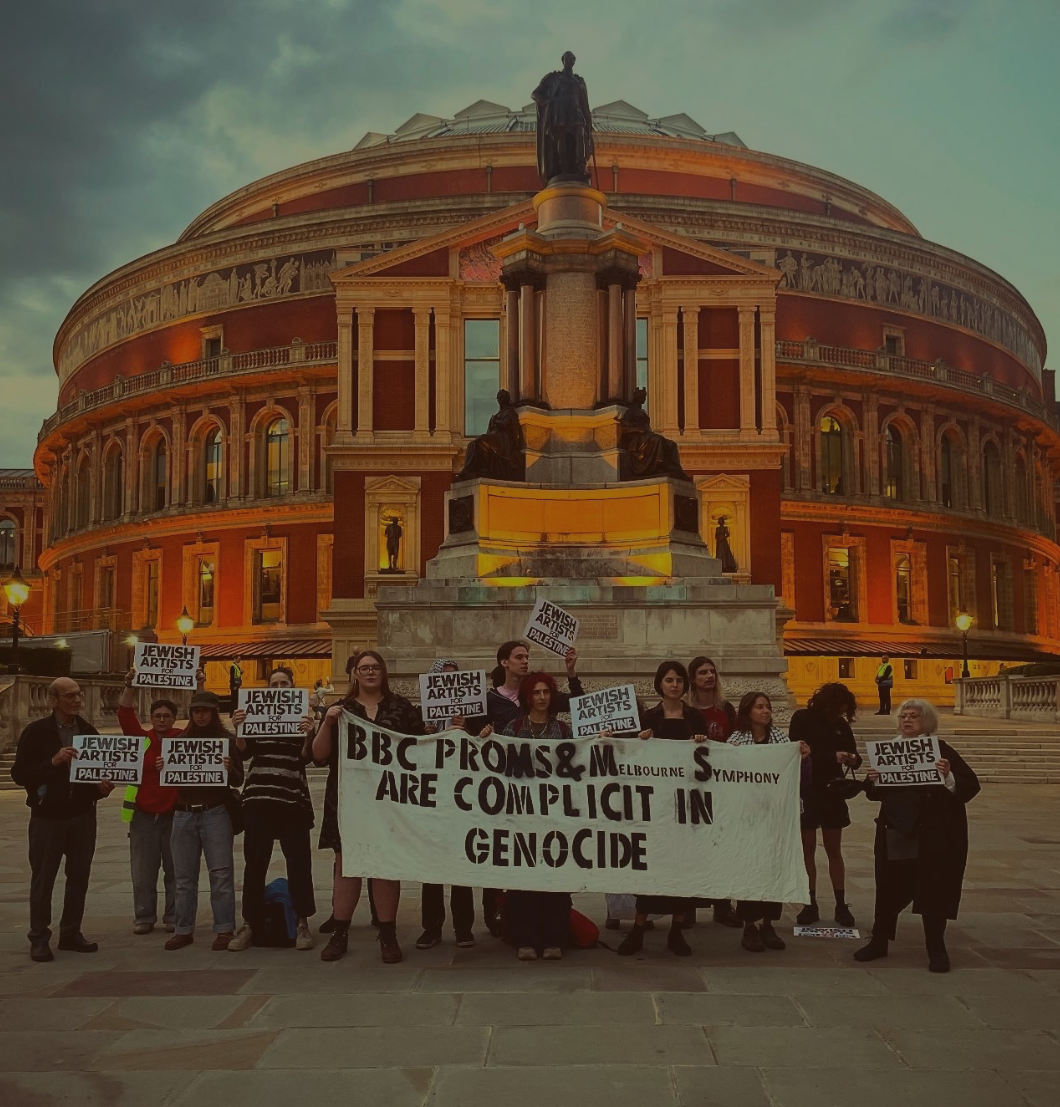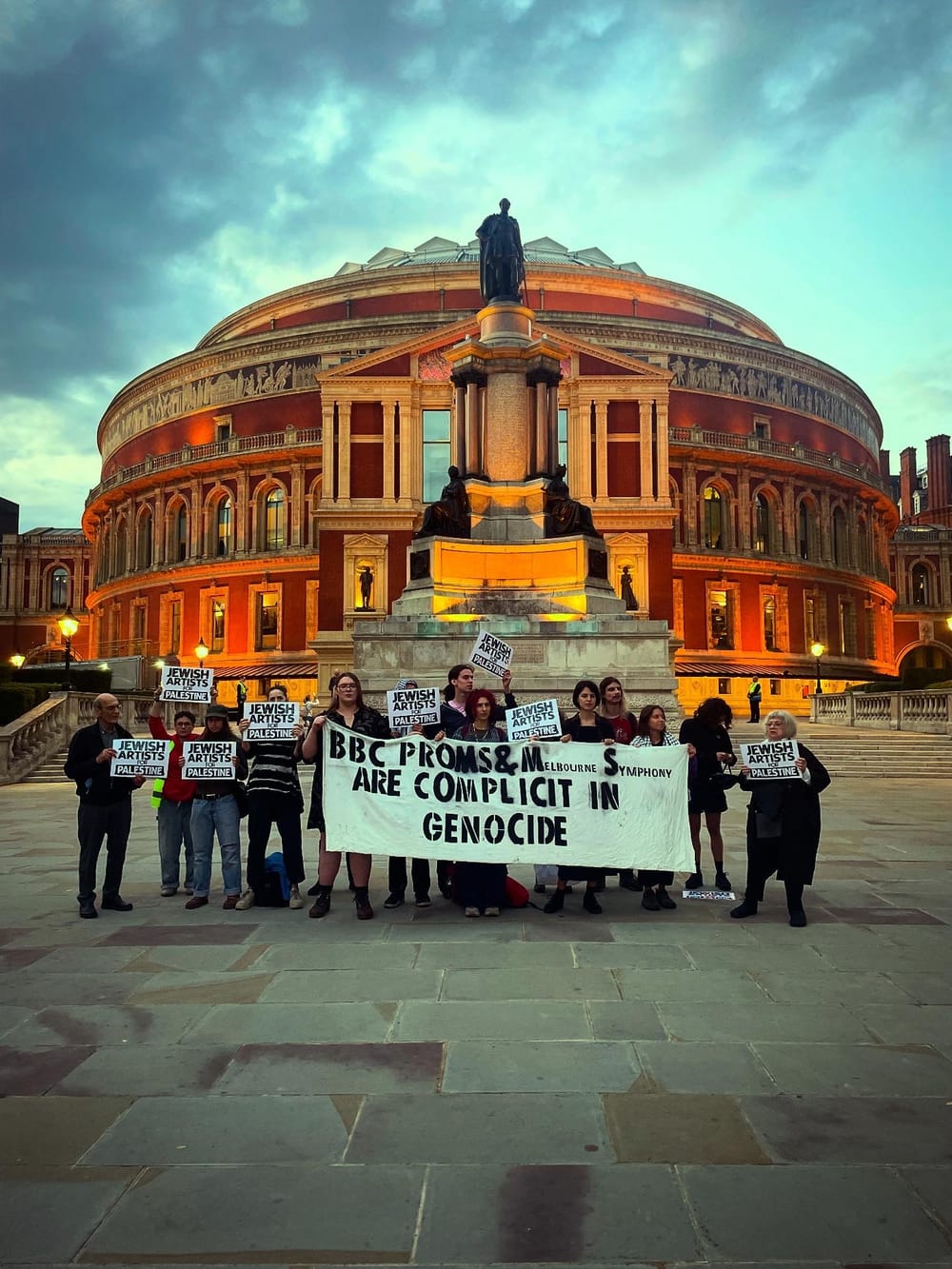Strange loops of history: the forgotten visions of Harry Fainlight
The reluctant beat poet's diasporic writing could guide us through our winding lineage and inspire Anglo-Jewish futures.
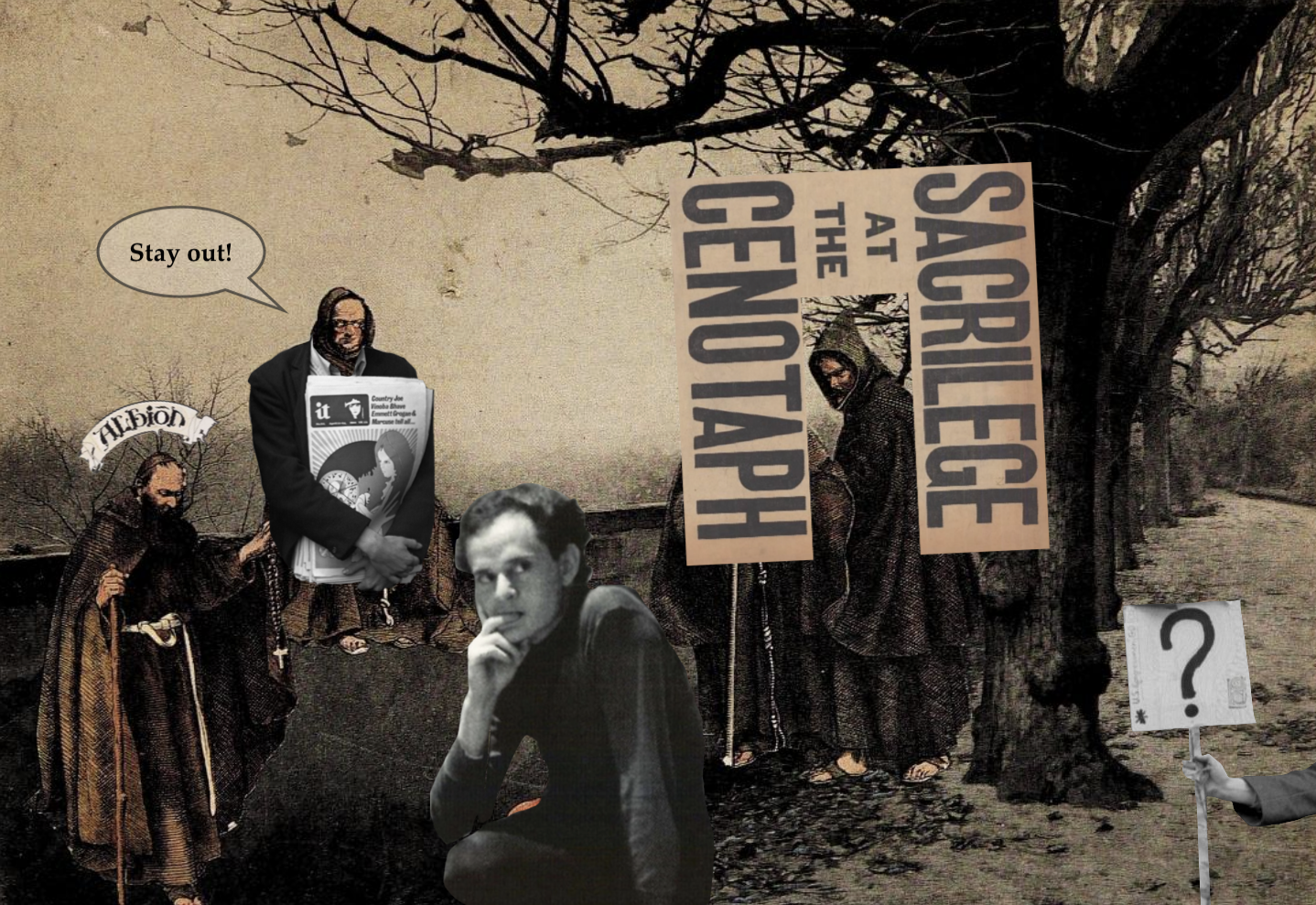
When discussed at all today, the poet Harry Fainlight is remembered as a countercultural casualty par excellence. As noted in one of the only critical appraisals of his work to date, "both the avant-garde and the establishment championed" Fainlight, and from a distance it is easy to see why. By the age of thirty, he had cruised with Allen Ginsberg, boozed with Jack Kerouac, and posed for Andy Warhol, as well as managing to feud with everyone from Robert Graves to Ted Hughes. Amidst it all Fainlight also found the time to write some of the most startling verse of his generation. In the words of Stephen Spender, the then elder statesman of British letters, "Harry Fainlight and his poetry should be famous."
But it was not to be. Many point to Fainlight’s catastrophic appearance at the 1965 Royal Albert Hall poetry reading as the end of his career. Increasingly convinced of his own marginalisation and intent on confirming it, the former boy wonder retreated to an isolated corner of Wales, where he ceased to publish and lived with neither running water nor electricity. It was there that he died in 1982, one of the great what-ifs of modern poetry.
I began to delve more seriously into Fainlight’s life and work around two years ago. My idea was to write a dual biography of him and his elder sister Ruth, a celebrated poet in her own right. What I soon found missing in the standard account of Harry’s life was a recognition of the sheer scope and scale of his work. Even though he stopped publishing, Fainlight never stopped writing, producing a dazzling and experimental body of work that fused Jewish mysticism with queer longing.
One text in particular came to fascinate me. Published in late 1967, Reversed Adam was Fainlight’s only published essay. As was typical with the inscrutable poet, the essay was a brief and highly idiosyncratic response to the rise of psychedelia. Looked at again, though, and it seemed to capture something of the unique experience of Anglo-Jewish life. Read today, it also offers a prescient meditation on our ambiguous future.
“The great wandering Jew” returns to Britain
Though often described as being an “Anglo-Jewish poet”, Fainlight was in every way a child of the diaspora. Leslie, his father, was born in Hackney but moved first to Uruguay and then to the USA, where he met and married Fanny, herself born in Bukovina. Harry was born in New York in 1935 and spent his first few years in London before being evacuated to Wales and then to Virginia. After the war, he moved between London, Brighton, and Birmingham with his parents and sister.
It was only on moving back to New York in 1963 that Fainlight truly came into his own, finding himself at the heart of the city’s vibrant downtown poetry scene. In quick order he was producing reams of poetry that was by turns abstract, intimate, punchy, and weird. He returned to London in the summer of 1965 on a high, hoping to make the city his own. But what he found made him deeply ambivalent.
Christ comes to Glastonbury
Britain in the 18th-century had been home to a number of messianic and millenarian movements. One of the most intriguing was “British Israelism”. Though largely forgotten today, this credo held that the true descendants of the Lost Tribes of Israel were the indigenous population of Albion, a mystical land we now know as Britain.
At the heart of the British Israelite doctrine was the belief that the town of Glastonbury had once played host to a visit from Christ. Though long debunked by archaeologists, the precepts of British Israelism found a new audience in the 1960s in large part thanks to an Eton-educated stoner named John Michell.
A widely-published writer and cultural commentator, Michell fused Arthurian wisdom and national pride into a seductive brew. His thinking was kickstarted in 1966 when he visited Glastonbury for the first time in the company of Harry Fainlight. With Michell’s backing, the town took on renewed importance for countercultural seekers of all stripes, a situation which eventually led to the founding of Glastonbury Festival.
In time, Michell would develop an increasingly hardline, nativist view of English identity, all the while acknowledging his debt to Fainlight, whom he dubbed the "great Wandering Jew” of the 1960s. Though Fainlight remained attracted to his friend’s ideas, Michell’s nickname hinted at a number of contradictions found in the doctrine of British Israelism, particularly for those of Fainlight’s background.
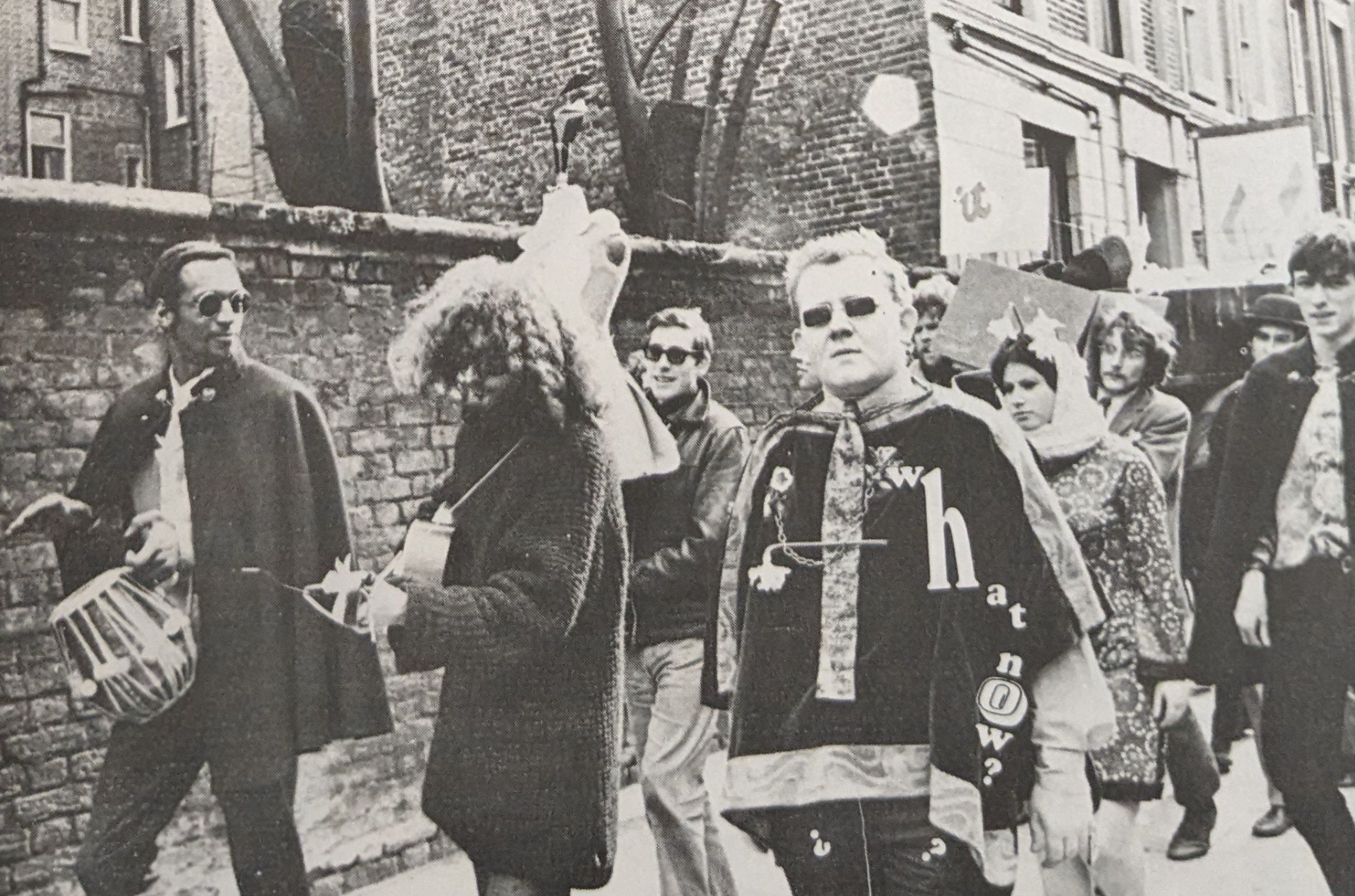
A failed resurrection
While Fainlight was wary of much of psychedelic culture, his friendship with Michell led him to grow acquainted with the staff of International Times, the UK’s leading underground newspaper. Threatened with closure as a result of a spurious obscenity charge, in March 1967 the paper’s editors decided to strike back—with Fainlight’s help.
The idea was to stage a symbolic resurrection ceremony. First, they would identify a human surrogate to play the part of the “corpse” of International Times. Friends and mourners would then carry the body in an open casket and “resurrect” it in front of the nation’s media, thereby publicising their case and offering the paper a fresh start. Though Fainlight had never actually contributed to International Times, the young poet was called on to serve as the personification of the paper. As tabloid photographs attest, Fainlight allowed himself to be carried through the streets of Whitehall garlanded with flowers. But before the ritual could be completed and the "corpse" resurrected, the embodiment of International Times climbed out of his casket and fled the scene.
Perhaps, in the heat of the moment, Fainlight resented being so closely associated with the chief organ of British psychedelia. He may also have chafed at the presence of the press, scarred as he still was by the debacle of the Royal Albert Hall reading. Whatever the reasons behind his sudden departure, Fainlight’s ambivalence soon spurred the writing of Reversed Adam. Pointedly, he selected International Times as his platform.
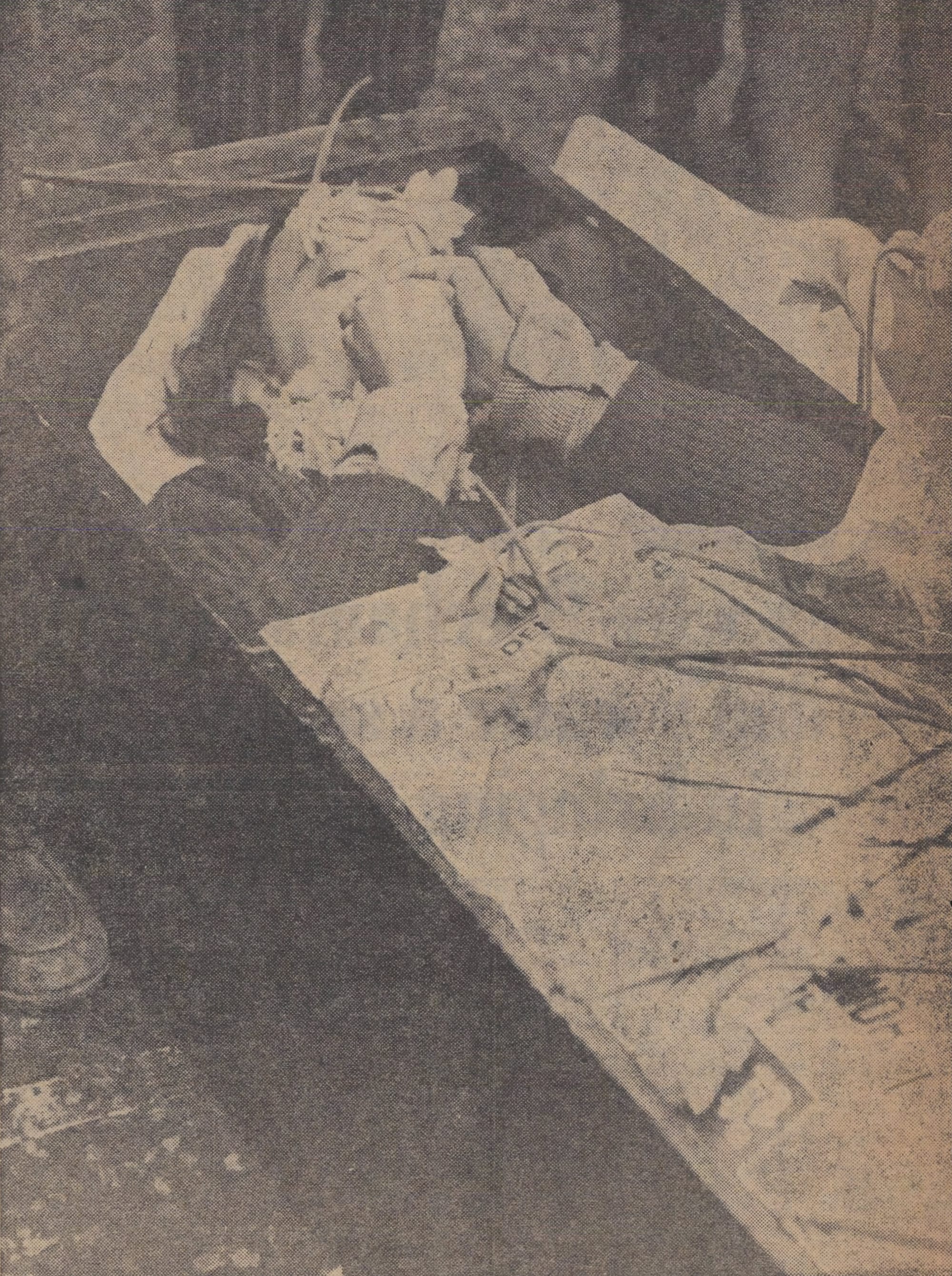
A kind of paradise or Eden
On the surface, Reversed Adam concerns itself with yikhes, which translates literally to "ancestry" in Yiddish. Yikhes, however, can be better understood as "lineage" or "descent" – a path which is often more crooked than straight.
Though International Times published a wide range of material, a whistlestop tour through the alternative origins of British Jewry made for unlikely subject matter. But the influence of Michell’s thinking grew clear once the essay got going. It opened with a summary of the myth of Christ’s visit to England: "A young jew later to be killed by the Romans, visits with his uncle a place on a remote island at the empire’s furthest edge." The "place on a remote island" is Glastonbury, and the island itself—Great Britain—is "a kind of Paradise or Eden but of an entirely opposite character to that of the Eden of the East: a place not concerned with genesis but apotheosis". Britain was not where things were born, Fainlight appeared to be arguing, but where they climaxed.
This was one of the "strange loops of history" that the poet saw as coming to fruition in the alternative culture of the 1960s. Another was the increasing visibility of queer love. Reversed Adam was written just five months after the Sexual Offences Act 1967 decriminalised homosexual activity between men over the age of 21. In this context, Fainlight’s language of reversal can be seen as a nod to the idea of so-called “sexual inversion”. Fainlight had played with this trope before, naming his first (and only) pamphlet of poems Sussicran, or “Narcissus” backwards. This interplay was the dynamic which gave Reversed Adam its distinct flavour, torn between invoking the distinctions of Jewish and queer life and a desire to assimilate into Albion. This tension quickly became a fracture.
Stay out!
After summarising the story of Christ’s visit to Albion, Fainlight’s essay jumped forward to examine the connection between Britain and the modern-day state of Israel. If Fainlight’s interpretation of Arthurian legend bore out, then "any sudden shift such as Israel’s recent nationalistic outburst”—the recent Six-Day War—"would find its opposite expression here" in Britain.
This sort of language came close to embracing the psychedelic shifts of sixties London, generic yin to clichéd yang. But Fainlight was quick to clarify to readers that the solution was not simply a question of turning on, tuning in, and dropping out, as advised by Timothy Leary and other psychedelic gurus of the time. As he pleaded in a brief follow-up note included in a later issue of International Times, Reversed Adam was a way out of LSD, not a way in. “All out please”, Fainlight implored: “Stay out!”
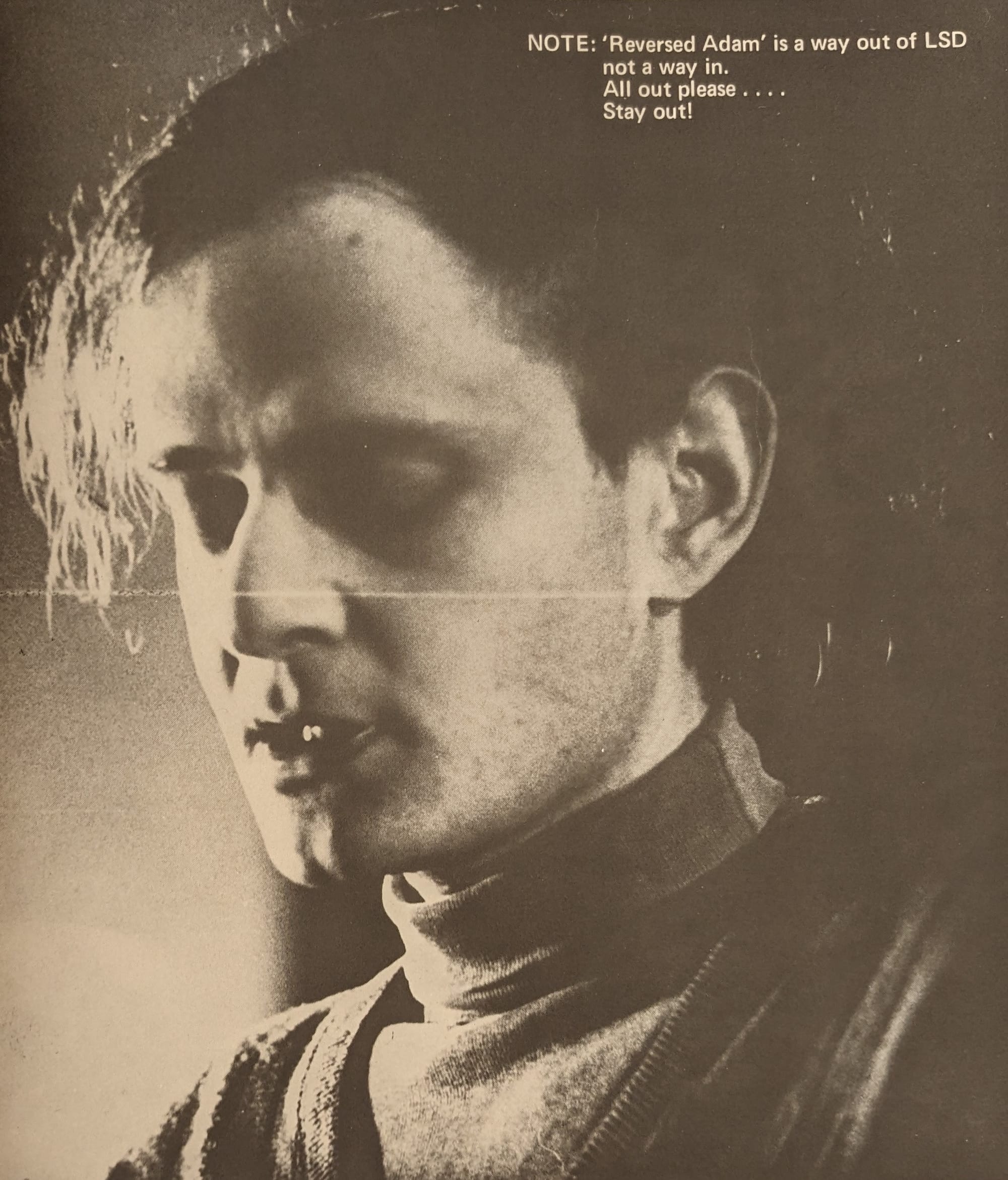
These u-turns and doublebacks are part of the wonder and frustration of Fainlight's work, which constantly approaches and retreats from any explicit or easily actionable stance. The mention of an “opposite expression” to Israeli nationalism is one moment of clarity in an otherwise impenetrable essay. In parentheses, Fainlight reveals his hand. “Stateless citizenship, which I have recently adopted”, he wrote, “may be the beginnings of such an expression.”
Though Fainlight had been born with both American and British papers, by the time he wrote Reversed Adam he had disregarded all claims to citizenship. He wrote instead as a diasporic Jew living in the shadow of warfare and under the pressure and promise of assimilation. The injunction to “stay out!” thereby took on another layer. It was not a call for political quietism or isolationism. It was a reminder that staying on the outside looking in can be a privilege as well as a burden.
Stitching and unpicking a number of irreconcilable tensions, Fainlight’s seductive and elusive ideas resonate strongly and strangely with our own times. Whether one believes in the ideas of British Israelism or not, strange loops of history brought some of us to Britain and pulled others away. Like ships in the night we meet and cross paths, recognising ourselves and fearing our uncanny reflections. As we seek to untangle our allegiances, we could have worse guides to this uneasy terrain than Harry Fainlight, less a prophet than the reluctant poet laureate of Anglo-Jewish malaise.
M. Syd Rosen is the author of a forthcoming biography of the visionary mathematician and anti-apartheid organiser Robin Farquharson.
Author
M. Syd Rosen is the author of a forthcoming biography of the visionary mathematician and anti-apartheid organiser Robin Farquharson.
Sign up for The Pickle and New, From Vashti.
Stay up to date with Vashti.
